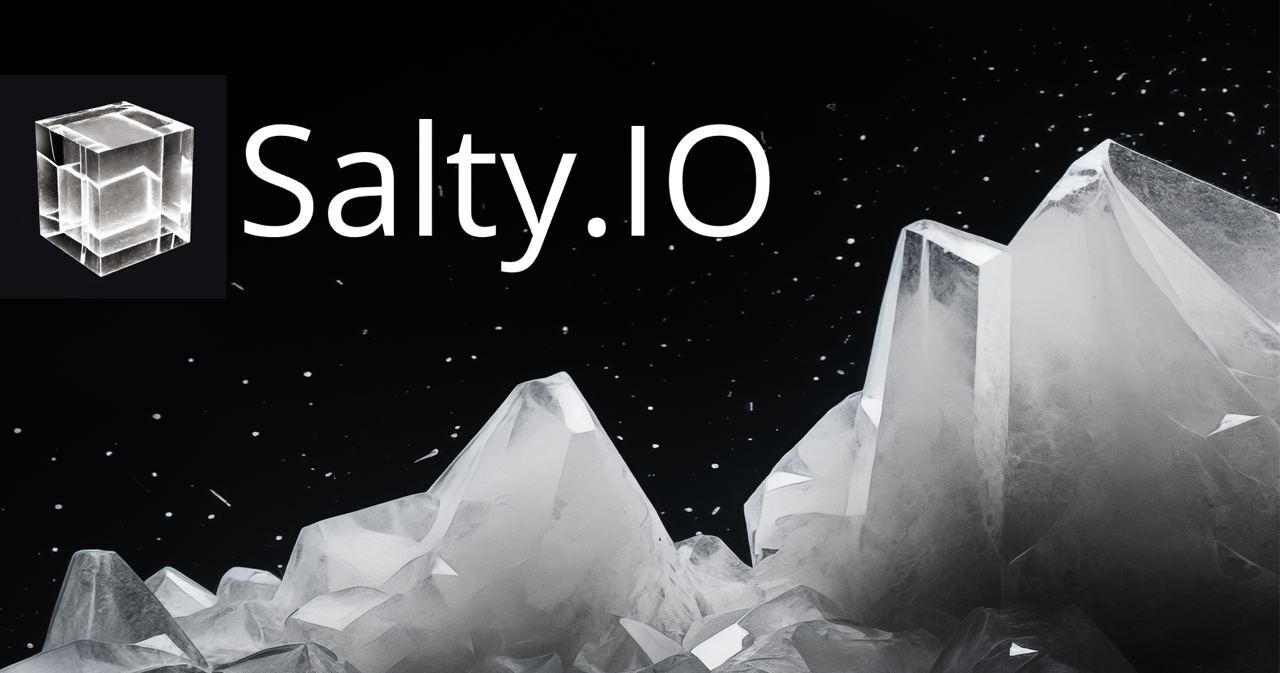Novel Mechanism DEX Yield With Automatic Atomic Arbitrage
0
0

Coinscribble by Coinbound / In the dynamic world of decentralized finance (DeFi), the quest for efficiency and innovation is ceaseless. Today, Salty.IO introduces a transformative paradigm: Automatic Atomic Arbitrage (AAA). This novel mechanism represents a substantial leap towards optimized yield generation and equitable value distribution.
A Market Disoriented: The Problem at Hand
Arbitrage bots have long taken advantage of inefficiencies in decentralized markets to extract as much profit as possible for themselves. With each trade executed on traditional DEXs, price imbalances create opportunities for profit— opportunities that bots exploit far faster than any human trader could. Consequently, DEX users themselves are left behind, forfeiting potential earnings to automated entities who have little interest in the ideals of DeFi.
Salty.IO introduces AAA — a protocol designed to autonomously harness and redistribute arbitrage profits.
Automatic Atomic Arbitrage (AAA)
The concept of AAA is simple in theory: Salty.io integrates arbitrage directly into the transaction layer of the exchange, making it seamless and atomic — unable to be front-run or outpaced by bots or miners engaging in Maximal Extractable Value (MEV).
The Process of AAA
- When a user initiates a swap on Salty.IO, say USD for ETH, the smart contract instantly conducts the trade with the usual market-expected price impact.
- Post-swap, Salty.IO’s smart contract searches for arbitrage opportunities across its liquidity pools, leveraging the price movement resulting from the executed swap. Specifically the contract looks chooses between five possible triangular arbitrage paths for the given swap.
- If an opportunity is detected, a predetermined series of trades is automatically executed within the same transaction. These trades simultaneously rebalance the exchange’s own pools’ reserves, and lock in arbitrage profits.
Users experience the usual trading process, but with the added feature that AAA instantly identifies arbitrage opportunities. This mechanism not only preserves the integrity of each swap but also ensures the redistribution of profits within the Salty.IO ecosystem.
The Zero-Fee Paradigm
By rerouting arbitrage profits to replace trading fees, Salty.IO establishes a novel model for DEXs — the zero fee DEX.
Efficiency: Gas and Governance
Despite the additional complexity, AAA maintains exceptional gas efficiency. By utilizing a fixed number of possible arbitrage paths and a heavily optimized bisection search, Salty.IO keeps the gas cost competitive — 93k gas for both the user swap and the arbitrage trades, and only 69k when users are swapping from pre-deposited tokens.
Conclusion
Salty.IO’s zero-fee DEX launches on March 1st, 2024.
Follow Salty.io at Twitter and Discord for updates on the launch — including the Airdrop scheduled for February 20th.
For more information: Gitbook Documentation.
Disclaimer: This article is for informational purposes only and is not intended as investment advice. Please conduct careful due diligence and consult a financial advisor when considering any investment.
0
0







